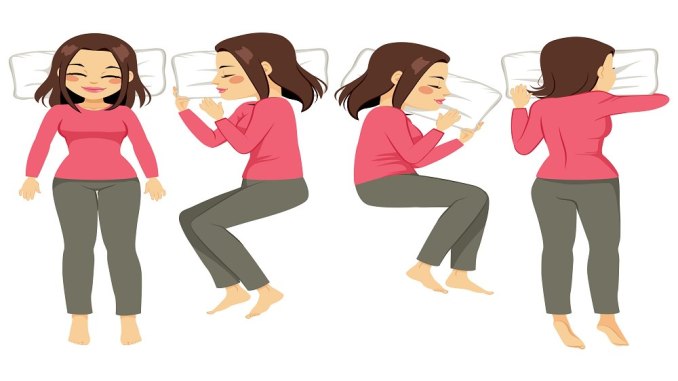The way you sleep at night can reveal more about you than you might think. A recent study conducted by the Better Sleep Council (BSC) uncovered interesting connections between sleep positions and various aspects of our lives. It turns out that your sleep position could be linked to your health, age, and even education level.
According to the study, individuals with higher levels of education, such as graduate school or above, were less likely to sleep in the Fetal position, which is the most common sleeping position among Americans. Additionally, differences in sleep position preferences were observed among different age groups. Gen Xers and Millennials were more inclined to sleep in the Freefall position (arms and legs outstretched) compared to Baby Boomers.
While our choice of sleep position is often based on comfort and habit, the study revealed that it can impact the quality of our sleep. For example, individuals who sleep in the Log position reported better sleep quality than those in the Fetal position. Interestingly, those who prefer the Starfish or Log positions were more prone to sleepwalking.
Moreover, our sleep positions can offer insights into other aspects of our lives. Log sleepers were more likely to perceive themselves as healthy, while introverts showed a strong aversion to the Freefall sleep position.
The study also highlighted some lesser-known sleep insights, including the fact that women are more likely to sleep in the Fetal position compared to men. Additionally, less popular sleep positions like Soldier, Starfish, and Log were associated with perceived medical benefits by those who preferred them.
To help optimize your sleep position for better rest, BSC sleep expert Terry Cralle, RN, recommends the following tips:
– Back sleepers (Soldier or Starfish) may benefit from placing a pillow or rolled-up towel under their knees to align the natural curve of the spine.
– Stomach sleepers (Freefall) should consider using a soft pillow or none at all to prevent neck strain.
– Side sleepers (Log, Yearner, Fetal) are advised to sleep on their side for improved comfort and uninterrupted sleep.
For more information on sleep positions and visuals demonstrating each one, you can visit http://bettersleep.org/better-sleep/sleep-positions.
In conclusion, the way you sleep can offer valuable insights into your overall well-being. By understanding the connections between sleep positions and various aspects of our lives, we can make informed choices to improve our sleep quality and overall health.

